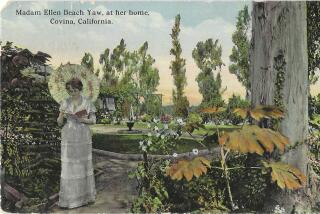Nicholas Maw, British composer, dies at 73
Nicholas Maw, a British composer who bucked the fads of modern classical music to return to more traditional melody and who brought William Styron’s wrenching novel “Sophie’s Choice” to the opera stage, has died. He was 73.
Maw died Tuesday at his home in Takoma Park, Md., of complications from dementia and diabetes.
A “maverick among English composers of his generation,” Maw “forged a musical language which is truly vibrant and sensuous, and which borrows both from the old and the new,” music scholar David Cooper wrote in the “International Dictionary of Opera.” Maw’s compositions ranged from solo instrumental works to sprawling symphonies and from comic to tragic operas.
In 2001, violinist Joshua Bell’s interpretation of Maw’s “Violin Concerto” won the Grammy Award for instrumental soloist accompanied by orchestra. The composer had written the piece for Bell.
Maw lived near Washington for more than two decades. From 1998 to 2008, he was on the faculty of the Peabody Institute at Johns Hopkins University in Baltimore, where he taught music composition.
It took him 14 years to write “Odyssey,” the symphony that premiered in London in 1987 and became his best-known work. The title had nothing to do with Homer’s epic of the same name but seemed an apt description nonetheless: Lasting 96 minutes, the piece is believed to be the longest continuous orchestral work ever written.
“What I want to do is sing the great song of our existence on this planet,” he told the Washington Post in 1992. “It’s a ludicrous ambition, but it’s one of the few that are worth trying.”
In his final major work, an opera based on Styron’s 1979 novel “Sophie’s Choice,” Maw said he tried to reckon with “some of the biggest horrors we’ve ever seen on the face of the Earth.”
The 2002 London premiere of “Sophie’s Choice,” tracking the story of a Polish-Catholic woman tortured by the memory of Auschwitz, received mixed reviews. Some critics complained that the four-hour performance was too long, but the wider judgment was one of respect. Four years later, a shortened “Sophie’s Choice” had its U.S. premiere at the Washington National Opera.
John Nicholas Maw was born Nov. 5, 1935, in Grantham, a town in central England. His father, a pianist and self-taught church organist, owned a music shop. Maw attended a progressive Quaker boarding school, where a teacher introduced him to the works of Igor Stravinsky, Bela Bartok and Maurice Ravel.
After studying at London’s Royal Academy of Music, Maw won a scholarship in 1958 to study in Paris with the composer and teacher Nadia Boulanger. His compositions won a competition judged by composers including Stravinsky and Aaron Copland. The $800 award was enough to keep him afloat in Paris for several more months.
During that time, Maw dabbled in the atonal composition in vogue among his contemporaries, the sort that detractors criticize as sterile and overly intellectual. He quickly determined his musical voice would be different.
In 1962, his first major work premiered in London: “Scenes and Arias.” Maw later recalled that it got only “one slightly snobbish notice in the Daily Telegraph,” but other composers took note.
British composer Anthony Payne said the piece “showed us how you could be reasonably modern and recapture that sense of progression” from beginning to end, something he found lacking in avant-garde music.
Maw’s marriage to the former Karen Graham ended in divorce. Survivors include his companion of 24 years, Maija Hay; two children from his marriage, Natasha Maw of London and Louis Maw of Glastonbury, England; two sisters; and two grandchildren.
Langer writes for the Washington Post.
More to Read
Start your day right
Sign up for Essential California for the L.A. Times biggest news, features and recommendations in your inbox six days a week.
You may occasionally receive promotional content from the Los Angeles Times.




